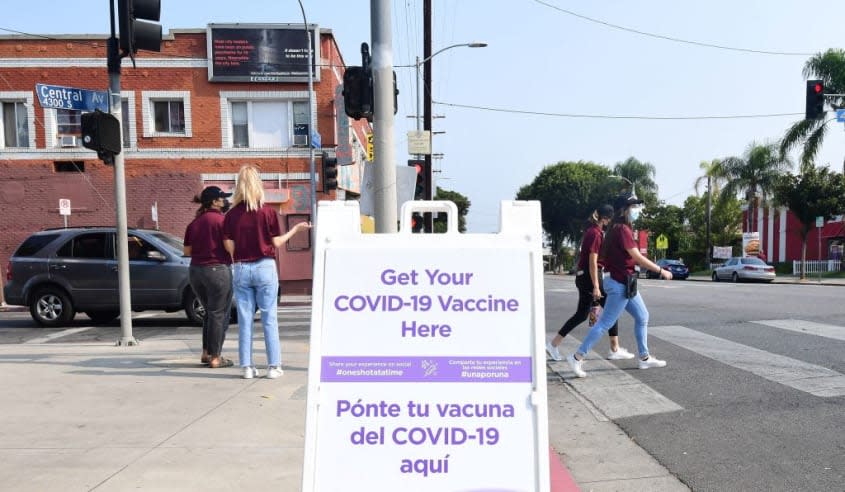Infectious disease expert: Americans must 'recalibrate' vaccine expectations

COVID-19 vaccines won't eliminate the coronavirus, "no matter how many booster shots the United States gives," Céline R. Gounder writes for The Atlantic. But that's no reason to panic or lose confidence in them.
Grounder, an infectious disease specialist and epidemiologist at New York University's Grossman School of Medicine and Bellevue Hospital in New York City, thinks public health messaging got out of hand early on during the vaccine drive, especially when the Centers for Disease Control and Prevention published real-world evidence that showed that two doses of the Pfizer and Moderna vaccines were 90 percent effective at preventing infections, as opposed to just disease. After that, folks got excited, believing that full vaccination status meant you could only very rarely get infected or transmit the disease. But now that the efficacy appears to be lower, there's a lot of anxiety.
Grounder tried to ease that, explaining that vaccines are typically more effective at protecting against infection outright when battling viruses that have longer incubation periods, like measles and smallpox. In those cases, the body is trained to kick the virus out before it can really establish itself. But the coronavirus and influenza, for example, don't take as long to start replicating and can do so before a vaccinated defense system revs up. Once it does, though, the virus doesn't have much room to operate and is usually blocked from progressing in the lungs and causing serious damage.
With that in mind, Grounder says Americans simply need to "recalibrate our expectations about what makes a vaccine successful." While "the public discussion of the pandemic has become distorted by a presumption that vaccination can and should eliminate COVID-19 entirely," that's not an attainable standard, she argues. And it's one that makes "each breakthrough infection" look "like evidence that the vaccines are not working," even though they're performing "extremely well" and reducing what may have been serious infections to either mild or asymptomatic ones. Read Grounder's full piece at The Atlantic.
You may also like
Actor suspected of participating in Capitol attack arrested in California
Pelosi admonishes congressmen who flew to Kabul amid evacuation efforts
CIA director reportedly holds secret meeting with Taliban leader Abdul Ghani Baradar

